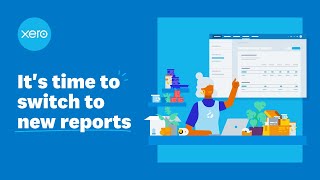Superannuation Changes 2022
What you need to know
Australian Superannuation regulations are changing in 2022. This presents some opportunities and challenges, depending on your age, residential status and what you do for a living.
Most of these changes will take effect at the end of the financial year (July 1, 2022), but they are worth being aware of ahead of time.
With that in mind, here’s a quick rundown of what will be different for people and when the changes take effect.
If you’re going through a separation or divorce:
From 1 April 2022, the Visibility of Superannuation law allows individuals in a current property settlement proceeding to request super information of their current or former spouse/de facto partner through the Family Courts. The law allows us to disclose the super information about their current or former spouse/de facto to the Courts, who will then provide the information to all parties.
If you’re from New Zealand:
The ATO is building and designing functions that will enable New Zealand residents to request transfer of unclaimed super money (USM), from the ATO to a KiwiSaver provider in New Zealand. This change should be complete by November this year.
If you earn less than $450 per month:
The monthly income threshold for superannuation payments is being removed from July 1, 2022. This means people who earn less than $450 per month can receive mandatory employer super contributions.
If you’re a first home buyer:
The amount of eligible contributions that can count towards an individual’s maximum releasable amount across all years will increase from $30,000 to $50,000. This commences on 1 July 2022.
What does this mean?
If you’re saving for a home, you can make voluntary contributions to your superannuation and avoid being taxed on this money. You can then withdraw this amount to help with the deposit on your first home. Previously, the amount was capped at $30,000. In the financial new year, it will be $50,000.
If you’re over 67 and still working:
Until July this year, if you’re aged between 67 and 64, and you want to keep topping up your super, you need to prove you are gainfully employed for at least 40 hours during a 30-day period. From July, this ‘work test’ will no longer be required.
This could present an opportunity to top up your super and pay less tax.
If you employ other people:
The Australian Superannuation Guarantee is set to increase from 10% to 10.5% from the first of July 2022. This will keep rising until 2025, when the amount jumps to 12%.
If you are paying people as employees or contractors, you will need to make sure they are getting enough super from you. Penalties may apply if you’re still paying old rates.
It’s also worth noting that from 1 November 2021, if a new employee does not nominate a super fund, you will likely have to check with the ATO to find out if they already have a super account. This initiative was created to minimise the problem of people having new accounts created every time they switch jobs.
If you’re selling your home to downsize
Previously, downsizers over the age of 65 were able to top up their super by $300,000 (per individual) after selling the family home. If you have owned your home for more than ten years, you can now downsize and put this much money aside from the age of 60.
This initiative is hoped to encourage people to downsize sooner rather than later, so there are more family homes available for growing families.
The downsizer policy also doubles the time pensioners will have to restructure their assets following the sale of their family home, with proceeds to be exempt from the asset test for two years.
What to do about superannuation changes in 2022
If you’re an employer, speak with your Chief Financial Officer, bookkeeper and accountant to make sure you’re not paying people incorrectly when it comes to superannuation.
Otherwise, speak with your accountant about the strategies you may be able to use to boost your super or use it more strategically as a way to minimise your tax bill. Now may also be a good time to have a chat with your mortgage broker and real estate agent, particularly if you’re thinking of buying or selling.
Want to know more about making the most of your superannuation? Talk to Imagine Accounting today.




